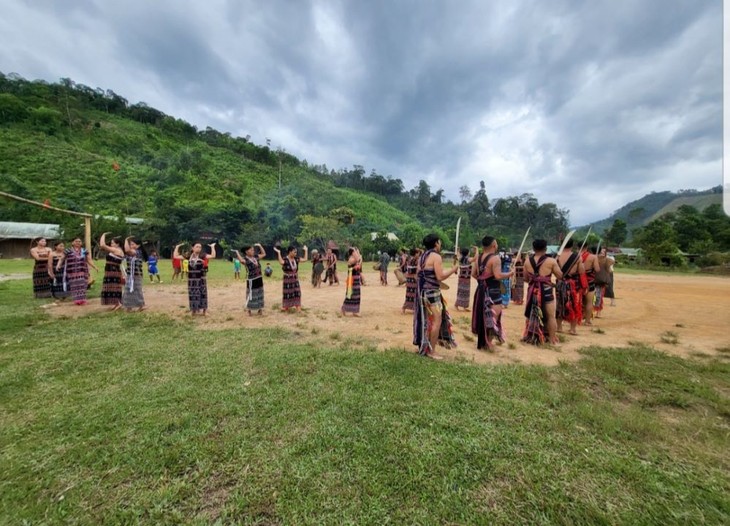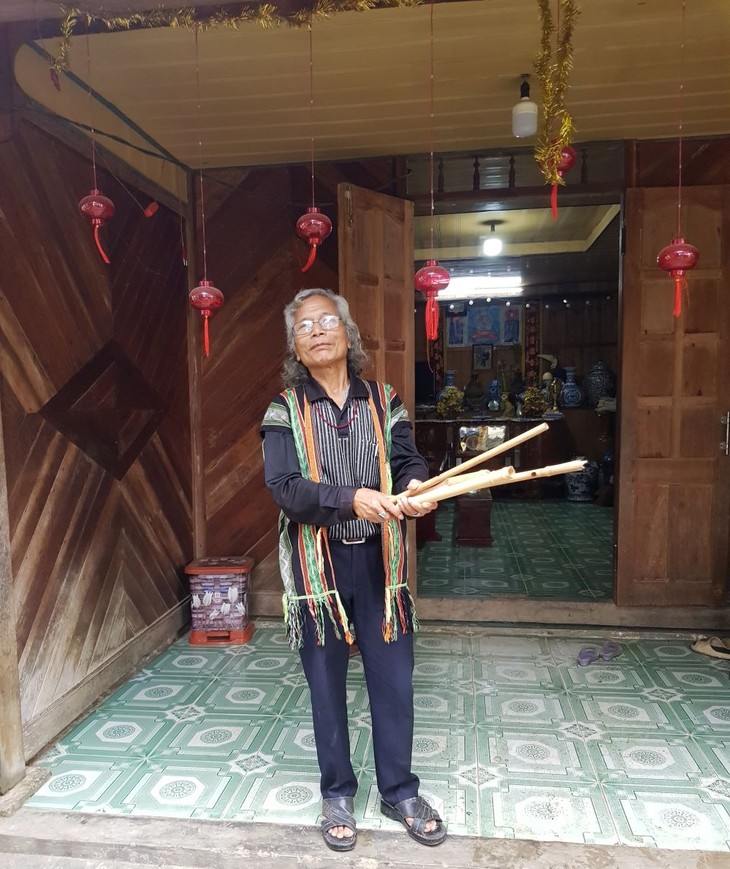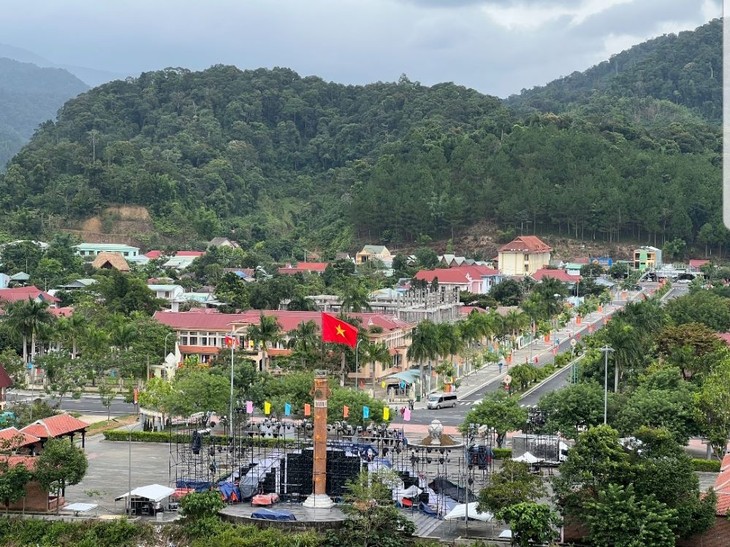Tung tung da dá is a traditional community dance of the Co Tu ethnic minority. The beautiful dance shows a harmony between men and women, symbolizing yin and yang in the universe. All villagers make a circle and dance anti-clockwise to the background sound of upbeat drums and gongs echoing in the majestic Truong Son mountain range.

Co Tu people in Lang commune, Tay Giang district, Quang Nam province dance tung tung da dá. (Photo: Ngoc Anh)
In the Co Tu language “Tung tung” means rising higher, more vibrant, stronger, and more stable. It expresses people’s desire to conquer the universe. "Da da" means orderly and steady, and has a spiritual meaning of thanksgiving to the heavenand earth.
Tung tung da dá is seen as a bridge connecting the past and present. The Co Tu dance symbolizes the connection with the universe and their ancestors. Bríu Pố, a prestigious elderly man in Tay Giang district, Quang Nam province, says: “Tung tung is a dance for men, and da dá is for women. The men play drums, gongs, and cymbals. The louder the drums and gongs, the better the performance. The men also hold horns, liquor bottles, and spears while dancing. The women wear papooses. They dance to celebrate the work they have done and pray for heaven and earth to bless them with good things.”
When dancing, men wear loincloths and brocade ponchos. They dance in bare feet, while their hands firmly grasp a shield, a spear, or a broadsword. They also hold the hand of the people dancing beside them. Every step they howl loudly, confidently, and bravely to demonstrate their strength and their will to protect the villagers and be ready to confront natural hardship.
The women wear brocade woven skirts, off-shoulder tops, and beaded necklaces. When dancing they raise their hands up to show joyfulness as they wait for sacred objects. They always smile and keep their eyes looking straight ahead. The dance movements are flexible and gentle, showing loyalty and not giving in to cruelty and brutality.

Village chief Príu Pố of Lang commune, Tay Giang district, Quang Nam province (photo: Ngoc Anh)
“When we study the Tung tung da dá dance of the Co Tu, we look at their feet. They dance gently on the toes. They keep their hands upward. In the past when dancing, the women held sticky rice, croissants, steamed sticky rice, and meat to offer to the heaven. Therefore, some people believe that the dance is an offering ritual to heaven. When looking down from above, there is usually a fire in the middle of the dance. There are two circles, one of woman and one of men. Sometimes there is only one circle. The woman always dances around the person standing next to her while moving around the fire. To a certain aspect, this dance illustrates the solar system. The sun is in the middle. The woman is the earth. The earth spins around itself and around the sun,” said Vo Van Hoe, a folklore researcher.
A principle of the dance is that when the gongs and drums are played, the women always step out to dance first, then come the men. If there are too many people, they will make two circles. The women walk first, and then the men. The inner circle is the women, and the outer circle is the men.
The dance is often held during major festivals, such as the buffalo sacrifice festival, the new rice festival, and the Guol house building ceremony.
Bh'ling Phat, head of P'ning village, Tay Giang district, said: “They plant a Neu bamboo tree in the center of the yard. People dance around it. The gong players go first, and are followed by the women dancing da da, and the men dancing tung tung. They howl wildly to call each other and the others howl to respond.”

An overview of Tay Giang district, Quang Nam province (photo: Ngoc Anh)
In 2014, Tung tung da da dance of the Co Tu in Nam Giang, Dong Giang, và Tay Giang district of Quang Nam province was recognized by the Ministry of Culture, Sports, and Tourism as a national intangible cultural heritage. Tao Viet Hai, Deputy Director of Quang Nam provincial Department of Culture, Sports, and Tourism, said: “The Co Tu have a unique culture. Tung tung da da is a typical dance. We have preserved the dance and also modified it. Every four years, we organize a sport festival of ethnic groups in Quang Nam province to promote their traditional values.”
Ngoc Anh